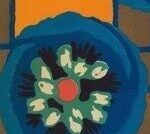 Special Issue of the Journal of Women’s History; Editor Izumi Nakayama, University of Hong Kong (Web)
Special Issue of the Journal of Women’s History; Editor Izumi Nakayama, University of Hong Kong (Web)
Proposals by: 30.03.2022
In the second decade of the 21st century, a wide range of social movements across the Americas, Europe, Africa, and the Asia-Pacific have highlighted the injustices and inequalities faced by those who menstruate and initiated public discussions of this physiological phenomenon long rendered private, shameful, or hidden. Similar conversations on menopause—the cessation of menstruation—challenging its stigma as “unspeakable” are slowly gaining ground as the global pandemic has forced old and new discussions on the intersections of gender, race, health, and working conditions for waged and non-waged laborers.
Modern biomedical interpretations generally understand menarche (the onset of menstruation) and menopause as the physiological bookends of an individual’s reproductive potential and abilities, and as such, the menstrual cycle is often embedded in narratives of giving birth. The history of reproduction has garnered significant academic attention and study. Scholars have explored the intricate intertwining of the social, cultural, political, scientific, spiritual (among others) interests on how humans are born (or not), and the global connections and encounters of these ideas, as seen in recent works by Heywood et al eds. Reproduction: Antiquity to the Present Day (Cambridge University Press, 2018). Menstruation—its commencement, absence, and cessation—has been understood in diverse ways over time and space, yet the myriad interpretations also share similarities that provokes further analyses of physiological functions and menstruation’s importance to the construction of cis- and transgender identities. Anthropologists have explored the ritual and symbolic manifestations of menstruation and menopause, yet numerous intellectual voids remain to be filled by historical narratives and analyses.
It is within this context that the Journal for Women’s History is calling for papers focusing on the histories of menstruation and menopause around the globe. This special issue aims to highlight the historical changes, continuities, diversities, and experiences of those who menstruate, and those who do not. We are looking for historical studies that incorporate transdisciplinary and transnational approaches and explore hitherto underexplored questions, themes, peoples, and regions.
This special issue invites submissions that consider, but are by no means limited to, the following thematic approaches involving menstruation and menopause: Read more … (Web)
